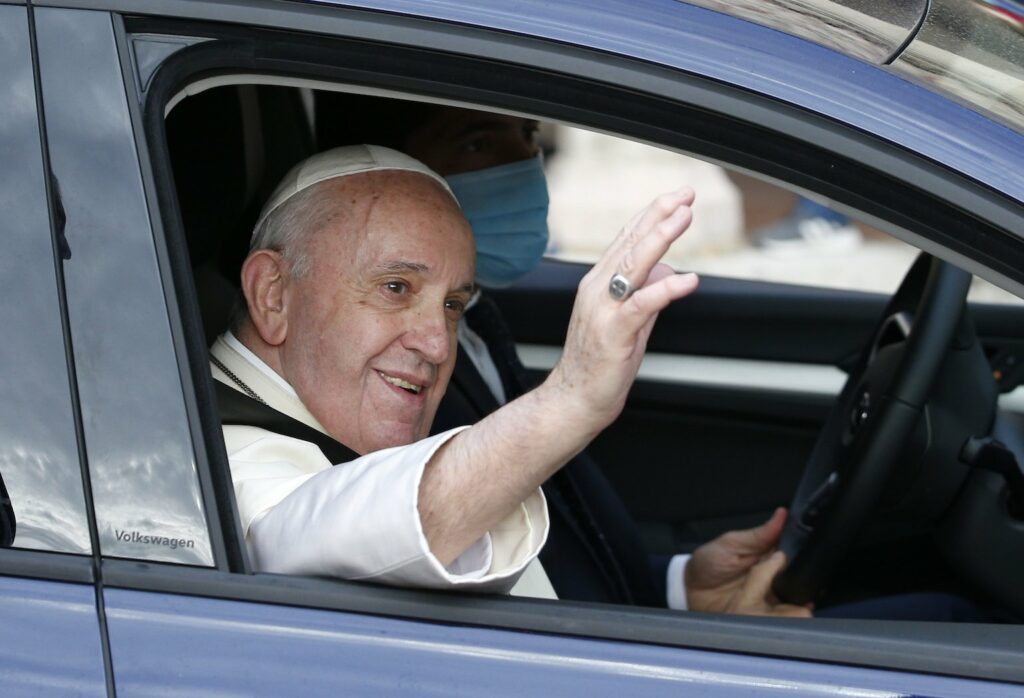Throughout his pontificate, one of the places about which Pope Francis has often spoken and written is the periphery. This is most notable in the encyclical “Fratelli Tutti” (“Brothers All” ) that he wrote last October.
In it he addresses multiple religious, cultural, economic and political concerns seen in the light of Scripture and Catholic Social Teaching. He views them through universal, local and personal lenses.
We might think of the periphery as something distant, a part of the human landscape where few reside and which is difficult to reach. What we often forget, and about which our Holy Father reminds us, is that the periphery is not necessarily physically or emotionally distant from us. It can be as near as our families, neighborhoods and parishes or as vast as the world.
Consider an example from our own diocese. During the pandemic, we have devout Catholics, fully immersed in the life of the Church living in care facilities where, for a time, they may have been isolated from close contact with their families or friends. In that experience, they were definitely on the periphery; in that isolation, they are distant and alone even though they are geographically close to us.
What are we, as a Church, doing to remain connected to them? How do we ensure that we are reaching them? How will we, once our parishes are fully opened again, immerse them once more, as we did in the past, in our faith communities?
Those are the kind of questions that “Fratelli Tutti” invites us to answer.
On the periphery, we will find immigrants seeking refuge. They are without jobs and homes, but they come with hope that this will be a better place for them. It may appear to be a dichotomy, but they are both in our midst and on the periphery in a very tangible way.
While the Church has done well in focusing on that periphery, in putting the message of “Fratelli Tutti” into practice, we need to ask: How do we build a community, environment and culture of charity everywhere — personal life, family life, community, Church, nationally and internationally?
That is the mindset Pope Francis invites us, individually and as a Church, to have — a pastoral perspective and approach steeped in charity. We are called to examine, here and now, how we respond in small ways to those who, for example, are isolated, anxious, suffering from addiction, sometimes from places and families far from us, but sometimes very close, from our own families. When we recognize the periphery, we will always find people there to whom we can express our love through presence, encounter and accompaniment.
Some may view Pope Francis’ universal perspective as too idealistic, too impractical. He is not idealistic; he is being very realistic. But he does provide us with the ideal to which to aspire: That we should be living as Christian disciples who are transforming the world in which we live.
That transformation requires us to embrace and practice solidarity which, along with the dignity of the human person, the common good and subsidiarity, are principles of Catholic Social Teaching. Solidarity is, as St. John Paul II wrote in his 1987 encyclical “Sollicitudo Rei Socialis” (“Social Care”), one’s commitment “to the good of all and of each individual, because we are all really responsible for all” (38).
Pope Francis sees solidarity as universal identification of each one’s dignity. All who are on the periphery are part of our human family, no matter what their circumstances — politically, economically, culturally. We are one with them and need to treat them as someone who is close to us, as we would someone in our own family. We are urged to welcome and engage them.
In “Fratelli Tutti,” the pope devotes the entire second chapter to the parable of the Good Samaritan. That parable was Jesus’ response to the scholar who asked, “Who is my neighbor?” (Lk 10:30). As he finished telling the parable, Jesus asked the scholar, “Which of these three, in your opinion, was neighbor to the robbers’ victim?” (Lk 10:37).
Pope Francis asks similar questions of us: “Will we bend down to touch and heal the wounds of others? Will we bend down and help another to get up? This is today’s challenge, and we should not be afraid to face it” (70).
As we look at the peripheries and the people who occupy them, may we be inspired by these thoughts from “Fratelli Tutti”:
“Each day offers us a new opportunity, a new possibility. We should not expect everything from those who govern us, for that would be childish. We have the space we need for co-responsibility in creating and putting into place new processes and changes.
“Let us take an active part in renewing and supporting our troubled societies. Today we have a great opportunity to express our innate sense of fraternity, to be Good Samaritans who bear the pain of other people’s troubles rather than fomenting greater hatred and resentment” (77).
Editor’s note: The encyclical “Fratelli Tutti” can be found here.

